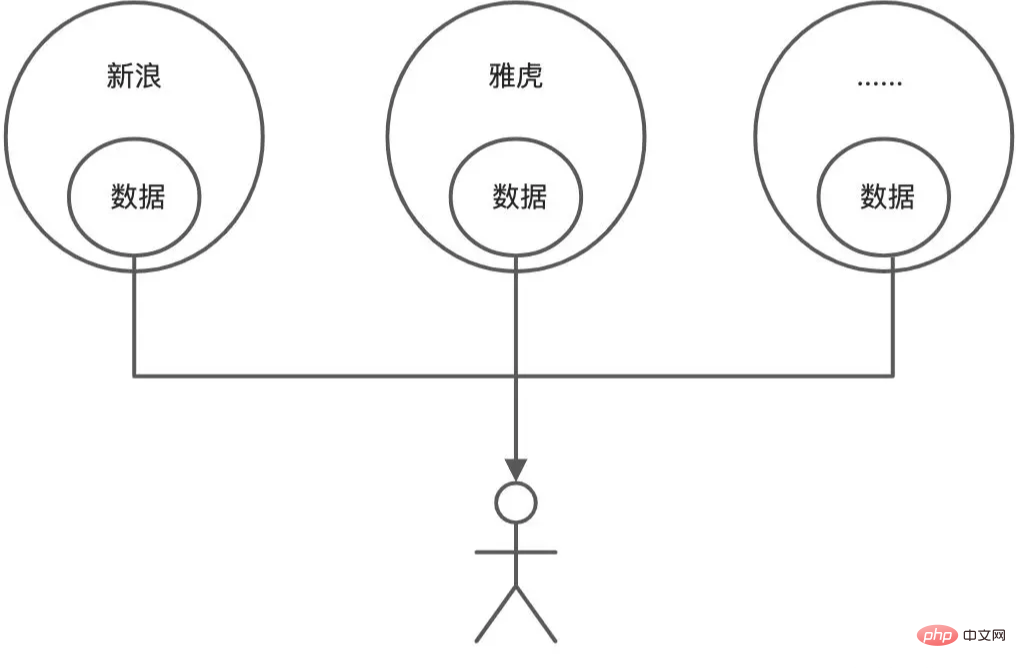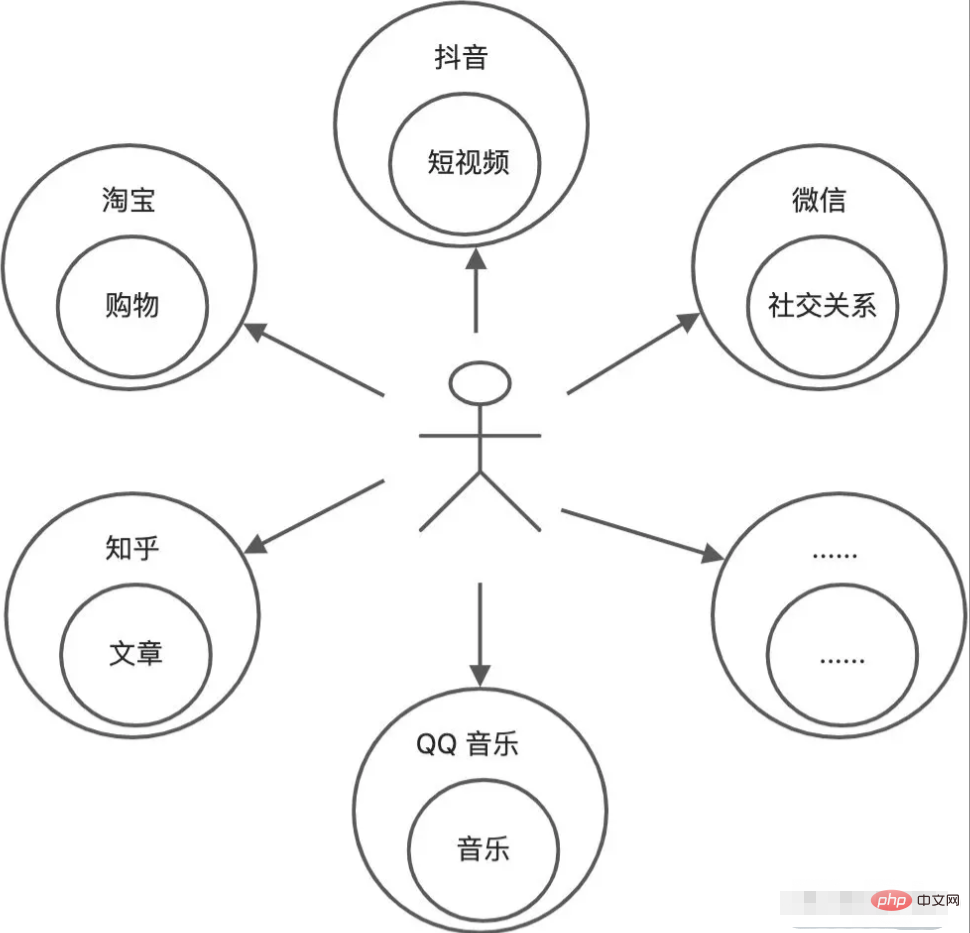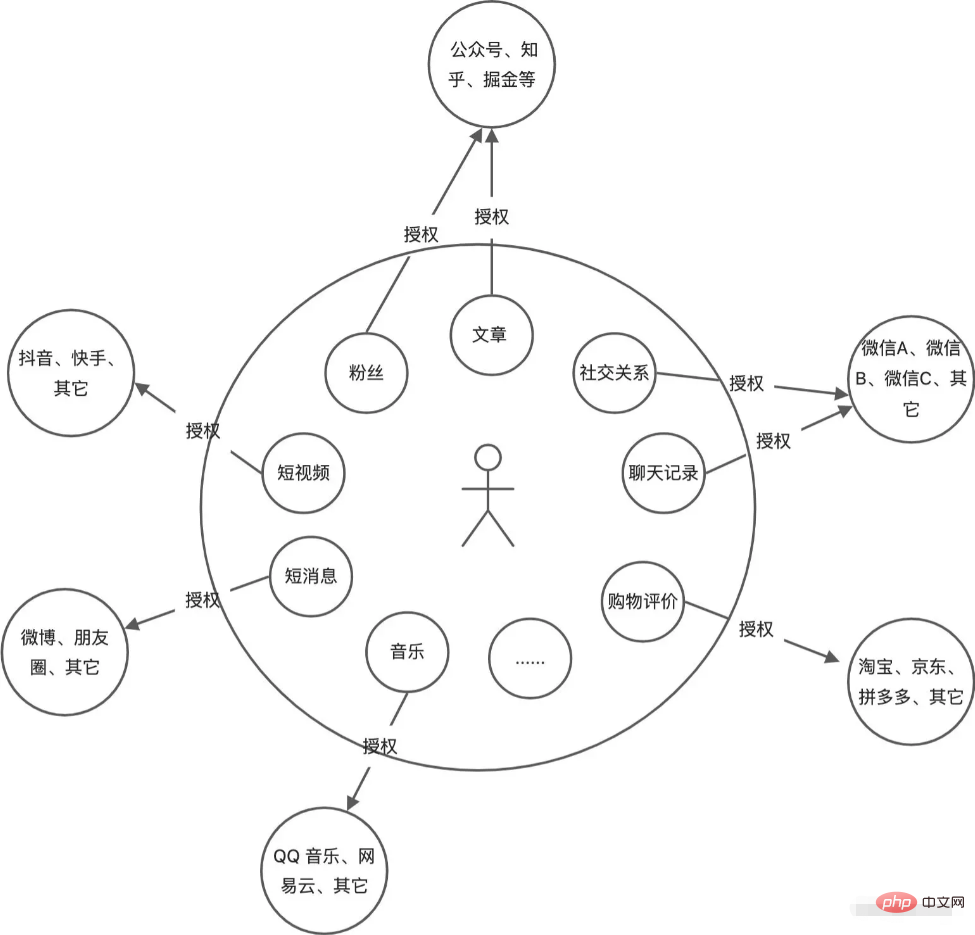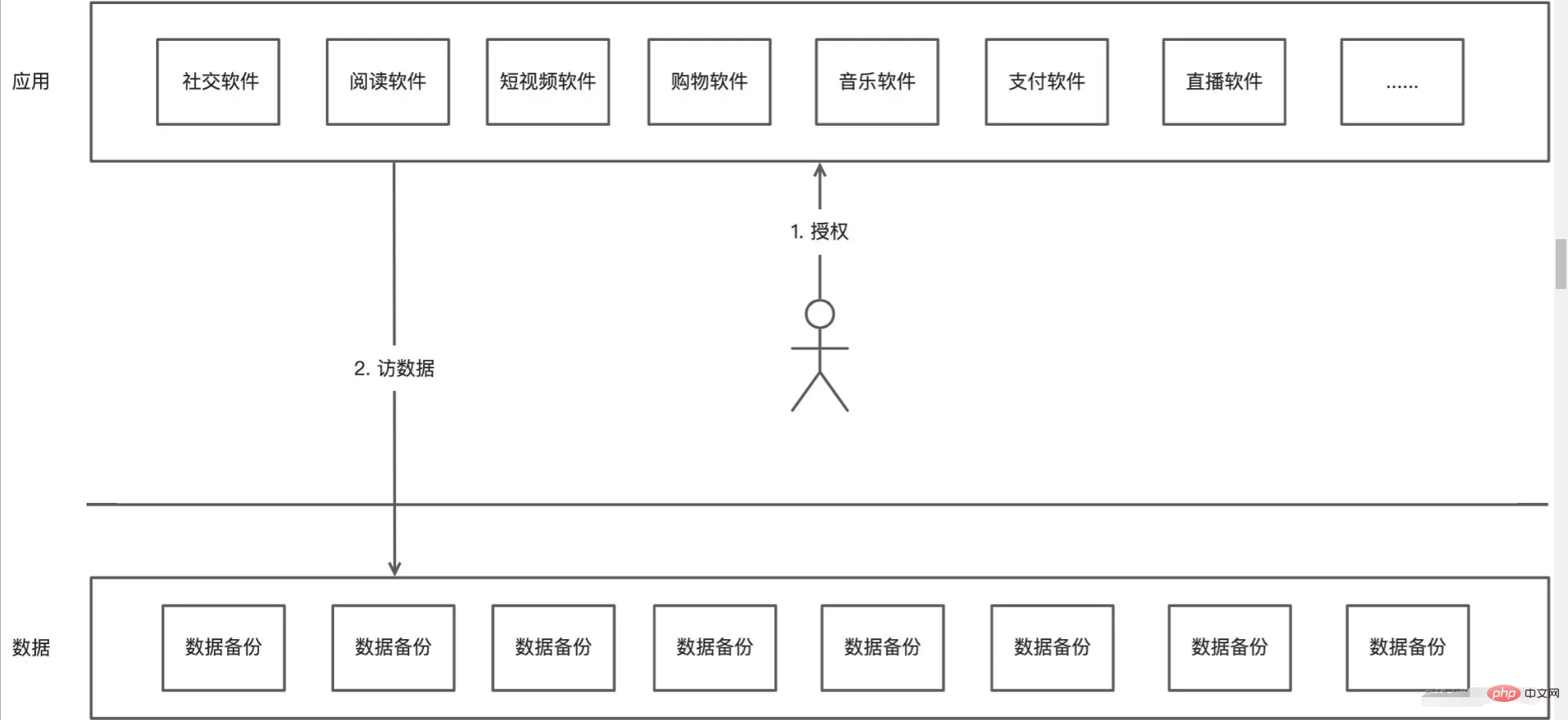What is web3? Vernacular analysis of web3 forms
Speaking of web3, many people think it is a scam and cutting leeks. This is because most articles introducing web3 are inseparable from concepts such as NFT, digital currency, blockchain, Bitcoin, Ethereum, and the Metaverse. They are mysterious and mysterious, divorced from our lives, and do not solve our pain points. At the end of the article, the general article teaches us how to speculate in coins, how to buy and sell NFT, and how to cut leeks properly, so most people think that web3 is just deceiving people.
To be honest, I think a lot of things are just hype, and I don’t believe them either.
How many millions of dollars can a picture sell for? Do you want to sell me an air coin? Metaverse? Maybe I have to wait until my son grows up to play?
Regarding what web3 is, each article may introduce it differently. It seems that everyone has not yet reached a consensus on what web3 is. But for ordinary people, we only care about whether web3 solves my pain points and whether it brings me value.
In this article, I will introduce the web3 form that I recognize in plain English, which greatly solves our pain points. I would like to call it the future!
This article will not involve any related concepts such as leek coins (I don’t understand them either), so please feel free to eat them.
The Cage of web2 (the current pain point)
Usually what everyone calls web1 refers to the portal era, where content is created by major portal websites and is available to ordinary users Just as a browser. The data is generated by the portal, and of course the benefits belong to them, and the value flow is correct. Summary: Platform creation, platform ownership, platform control, and platform benefit.

#What people usually call web2 is our current Internet form: User creation, platform ownership, platform control, and platform distribution.

Give some typical examples:
- We created short videos on Douyin, and Douyin owns our videos. Control video distribution, and the income generated indirectly belongs to the Douyin platform
- The social relationships, chat records, circle of friends data, etc. we maintain on WeChat also belong to the WeChat platform, and the income generated indirectly belongs to WeChat
- We purchased goods on WeChat Taobao, and the massive purchase records belong to Taobao. Taobao generates income indirectly by analyzing the purchase records
- ......
- Unreasonable ownership and income rights: It does not comply with the market rules of "who creates, who owns, and who benefits". For example: The dozens of articles I published on Zhihu, official accounts and other channels have no income.
- Platform monopolizes and controls users: The massive content created by hundreds of millions of users is provided to the platform for free, giving rise to the emergence of multiple super giants. In turn, the giants began to control users, for example:
- Major content platforms control the content recommended to users through algorithms
- The Baidu search homepage is all paid advertising
- The platform is fragmented, WeChat blocks Alipay, Taobao, Douyin sharing, Taobao does not support WeChat payment, etc.
- The e-commerce platform is familiar with
- Content posted in the circle of friends is blocked and only visible to you
- Data is fragmented and cannot be migrated: Even though our control over major platforms has become intolerable, we have no way to change it. Our data is owned by the platform and cannot be migrated. In addition, under the current model, it is difficult to create a White Lotus platform.
- Every time I write an article, I need to publish it on various channels such as official accounts, Nuggets, Zhihu, Github, etc. Everyone’s comments, likes, and attention to the article are all separated and belong to each platform, not to my article
- I can’t stand the monopoly of WeChat, but I can’t control WeChat’s friends and chat Migrate the content I created such as records and Moments to other platforms
- I can’t migrate Zhihu’s fans, articles, comments, and followers to Nuggets
- The music I purchased on QQ Music , cannot be played on NetEase Cloud Music Player
- Privacy issue: Our social relationships, chat records, shopping records, search records and other data are all owned by each Big platforms control them and they can use our private data at will
- Data credibility: The data provided by the platform is not trustworthy, for example:
- My article readings may be all It is false
- The purchase volume of the product may be false
- The recommended popular videos may not be really popular
- data Security: Our data is stored centrally by the platform. If the platform hangs up, our data will be gone too.
Freedom and Development
Based on the market economy, the purpose of web3 must beUser creation, user ownership, user control, and protocol distribution.
In web3, all user data belongs to the user personally, and users can authorize other platforms to access certain types of their own data. Imagine this scenario:
- Social relationships, chat records, real-time chat messages, etc. are managed by me personally. If WeChat does not do well, I will fire him and not give him authorization. I delegated this information to another chat tool with a really good experience.
- The music I purchased was managed by me personally. QQ Music made me unhappy, so I fired him and authorized my music to another music software.
- I personally manage the articles I write, as well as the comments, collections, attention and other data of the articles. Whichever platform has a better experience, I will authorize it to him.
The summary is, whichever software makes me unhappy, I will seamlessly switch to another software and let the software supplier take care of it.

It makes me happy just thinking about being able to fire WeChat’s squid at will. It wasn't possible before, but web3 does bring this opportunity. I think the implementation idea of web3 should be like this:
The user’s data is stored somewhere. The user has full control over the data. No one can access or modify it without authorization. data.
The software requires user authorization to access user-specific data.

We require technical solutions that can solve the trust problem for the data storage part. That is, the user fully trusts the data storage party, and no one can access and modify the data without the user's authorization. Centralized data storage certainly cannot meet the requirements. From the current point of view, "blockchain" decentralized technology is very suitable to serve as a trusted data storage solution here. This is why web3 is always tied to the blockchain. In fact, if there are other technologies that can solve the trust problem, it will be OK.
For software providers, it may become lighter in the future. For example, many software may not need a database, and the data is completely brought by the user. What the software needs to do is help users manage data, such as playing music, managing articles, chatting, etc. Software providers must use high-quality experience to attract users, which makes them happy just thinking about it.
Come and learn the front-end, as I said, the front-end is the future! Welcome to follow my public account "Front-End Technology Brick" and learn front-end from me. Hahaha.
Summary
Where there is oppression, there is revolution. web3 allows us to fully control our own data and allows us to use better software. Users will vote with their feet, so why won't it succeed? So I am still determined in the direction of web3. Although this road is really difficult and requires countless people to explore, the future of the Internet must belong to web3!
If someone mentions digital currency, NFT, etc. when introducing web3 next time, then it’s time to cut the leek.
Finally, it should be noted that the definition of web3 in this article is not necessarily accurate. It is purely my opinion as a rookie. In addition, many of the opinions and words in the article come from the Internet. Thank you. internet.(Learning video sharing:
web front-end)
The above is the detailed content of What is web3? Vernacular analysis of web3 forms. For more information, please follow other related articles on the PHP Chinese website!

Hot AI Tools

Undresser.AI Undress
AI-powered app for creating realistic nude photos

AI Clothes Remover
Online AI tool for removing clothes from photos.

Undress AI Tool
Undress images for free

Clothoff.io
AI clothes remover

AI Hentai Generator
Generate AI Hentai for free.

Hot Article

Hot Tools

Notepad++7.3.1
Easy-to-use and free code editor

SublimeText3 Chinese version
Chinese version, very easy to use

Zend Studio 13.0.1
Powerful PHP integrated development environment

Dreamweaver CS6
Visual web development tools

SublimeText3 Mac version
God-level code editing software (SublimeText3)

Hot Topics
 What does WEB3 mean?
Mar 12, 2024 pm 02:18 PM
What does WEB3 mean?
Mar 12, 2024 pm 02:18 PM
Web3.0 refers to the third generation of the Internet, the protocol Internet. The core is: user creation, user ownership, user control, and agreement distribution of benefits. It uses the technology of blockchain protocol creation and automatic execution, that is, rights and value through smart contracts. The distribution agreement can be executed efficiently, accurately, and reliably without using a third party, and the entire process can be audited.
 Binance releases Web3 wallet, an article details its highlights
Jan 18, 2024 pm 04:45 PM
Binance releases Web3 wallet, an article details its highlights
Jan 18, 2024 pm 04:45 PM
Quick introduction: According to news on November 8, Richard Teng, general manager of Binance’s regional market, announced the launch of the self-hosted Binance Web3 wallet at Binance’s flagship event Istanbul Binance Blockchain Week, aiming to provide users with simple, secure, and integrated wallets. A one-stop Web3 experience. The wallet is embedded in the Binance App, providing users with a way to explore the Web3 world without complicated registration or worries about losing their mnemonic phrases. Users can easily exchange multiple tokens, access various DApps, quickly transfer funds, and earn income using cryptocurrencies. Binance, the world’s leading blockchain ecosystem and virtual asset exchange, recently launched a product called Binance Web3 Wallet. The wallet is designed to satisfy users’ needs for simple, convenient and secure We
 Web3 Security Warning丨Be careful with 'hot spots': Detailed explanation of OrdiZK exit scam
Mar 14, 2024 pm 07:37 PM
Web3 Security Warning丨Be careful with 'hot spots': Detailed explanation of OrdiZK exit scam
Mar 14, 2024 pm 07:37 PM
On March 5, the CertiK security team discovered that OrdiZK orchestrated an exit scam. In this incident, the scammers used methods such as hoarding transaction fees, malicious selling, and abusing management rights to steal approximately US$1.4 million in user funds. This incident is the 6th exit scam that occurred in 2024. To date, total losses from 2024 exit scams have exceeded $64 million. Event Overview OrdiZK claims to be a privacy cross-chain bridge between the Ethereum network and the Bitcoin network. They also claimed to enable cross-chain operations between other networks such as Solana and Avalanche, according to their since-deleted announcement. Deployers of the project have established two OZK token contracts and multiple staking contracts. early
 What public chains are there in web3?
Oct 08, 2024 pm 08:45 PM
What public chains are there in web3?
Oct 08, 2024 pm 08:45 PM
Web3, as a new stage of the Internet, is built on the decentralization of blockchain. As the underlying architecture of Web3, the public chain provides a secure and transparent data recording and management method. Among them, Ethereum has attracted much attention for its smart contract platform, while Binance Smart Chain is known for its high performance and low-cost transactions. Polkadot is a multi-chain network that facilitates connections and communications between blockchains. Solana is known for its fast scalable transactions, while Cardano is recognized for its academically-backed security and scalability.
 What is web3? Vernacular analysis of web3 forms
Aug 03, 2022 am 10:03 AM
What is web3? Vernacular analysis of web3 forms
Aug 03, 2022 am 10:03 AM
Regarding what web3 is, each article may introduce it differently. It seems that everyone has not yet reached a consensus on what web3 is. In this article, I will introduce the web3 form that I recognize in plain English, which greatly solves our pain points. I would like to call it the future!
 The event 'Focusing on Web3 Infrastructure and Unlocking New DApp Application Scenarios' jointly organized by ChainCatcher, ZAN, and Artela has concluded successfully
Mar 29, 2024 pm 01:51 PM
The event 'Focusing on Web3 Infrastructure and Unlocking New DApp Application Scenarios' jointly organized by ChainCatcher, ZAN, and Artela has concluded successfully
Mar 29, 2024 pm 01:51 PM
On March 26, ChainCatcher, ZAN (the Web3 brand of Ant Digital) and Artela organized an offline exchange event in Shenzhen with the theme of "Focusing on Web3 Infrastructure and Unlocking New DApp Application Scenarios", which came to a successful conclusion. This event attracted hundreds of Web3 developers, project parties and users to observe and learn. Among them, ZAN and Artela arranged booths at the venue and provided brand-customized service accessories, hat accessories, meals and other gifts for participants to collect. At the live event, CTOEthan of ZAN company, CTOCP of Layer1 public chain Artela company, co-founder of social infrastructure company UXLINK, encrypted project data
 What are the dominant coins in Web3? Which ones have the greatest development prospects?
Jan 26, 2024 pm 09:00 PM
What are the dominant coins in Web3? Which ones have the greatest development prospects?
Jan 26, 2024 pm 09:00 PM
Web3 is a decentralized system with blockchain as the underlying technology. Web3, also known as Web3.0, is the third generation of the Internet. It is also a decentralized system based on blockchain technology. Its core is the use of blockchain technology, Cryptocurrencies, non-fungible tokens (NFTs), return power to users. As Web3 has become a hot topic, Web3 concept currencies have also received a lot of attention. The most concerning one is what are the leading Web3 concept currencies? According to data analysis, the leading coins are mainly DOT, FIL and GPRT. Apart from the leading coins, which Web3 concepts have the most potential for investors? I am also very concerned about it, so I will tell you in detail next. What are the leading concepts of Web3? Web3 concept leading coin has DOT
 LFG Announces Brand Upgrade and Complete UI/UX Overhaul, Transforming Into a Cutting-Edge Web3 Super App
Aug 18, 2024 am 06:00 AM
LFG Announces Brand Upgrade and Complete UI/UX Overhaul, Transforming Into a Cutting-Edge Web3 Super App
Aug 18, 2024 am 06:00 AM
This evolution marks a new chapter as we become the ultimate platform for education, entertainment, gaming, and trading in the Web3 space.





